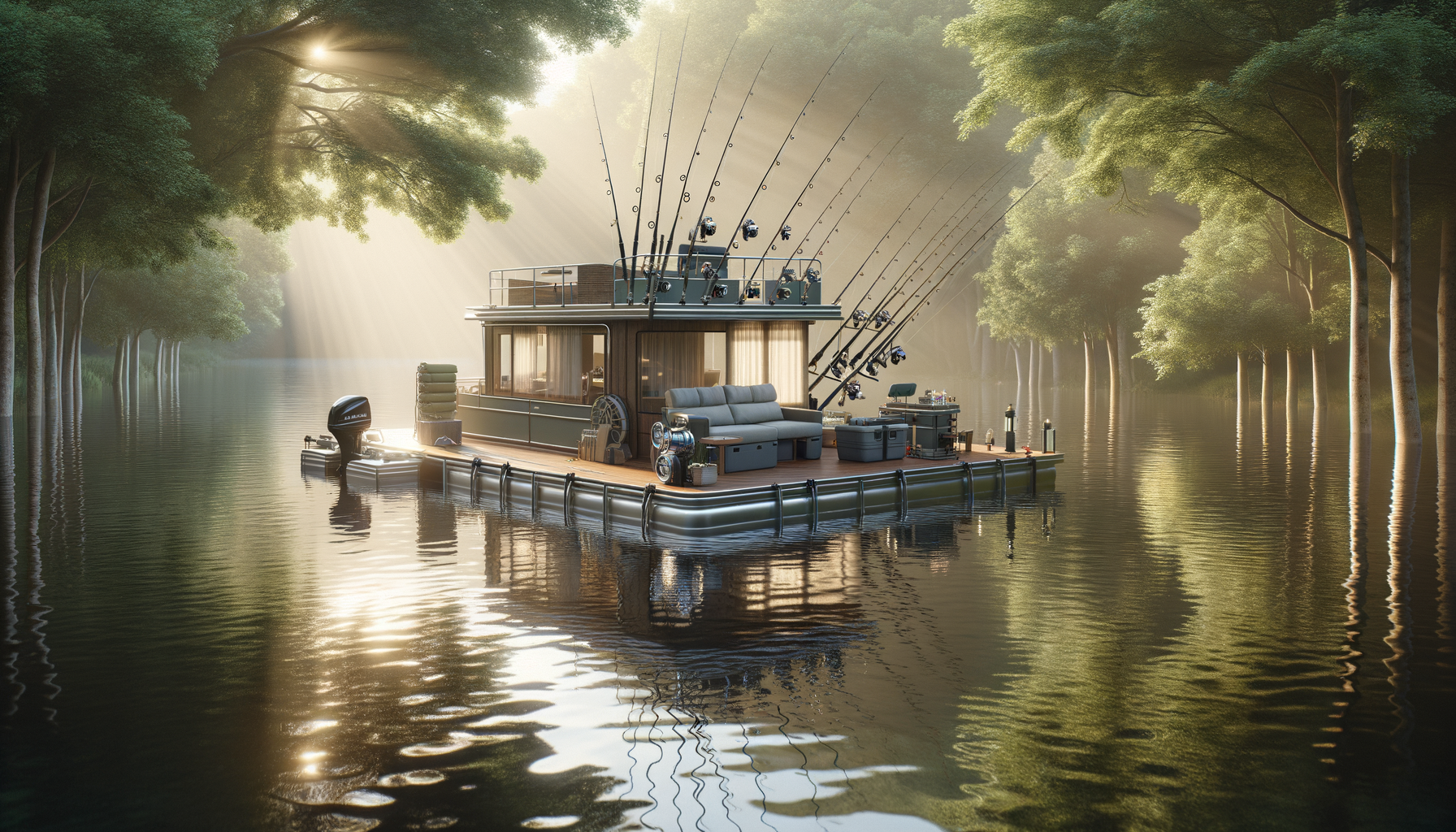Exploring the Versatility of Fishing Pontoons
Fishing pontoons offer a unique blend of stability and space, making them a popular choice for anglers seeking comfort and functionality on the water.

The Unique Advantages of Fishing Pontoons
Fishing pontoons have carved a niche in the world of recreational fishing by offering unparalleled stability and space. Unlike traditional fishing boats, pontoons are designed with a flat, expansive deck that provides ample room for anglers to move around freely. This feature is particularly beneficial for those who enjoy fishing with family or friends, as it allows for a more social and comfortable experience on the water.
The stability of a pontoon is one of its standout features. Thanks to its dual-hull design, a pontoon can glide smoothly over the water, reducing the risk of capsizing and providing a steady platform for casting and reeling. This stability is especially advantageous in choppy waters, where traditional boats might struggle to maintain balance. Additionally, the flat deck of a pontoon is ideal for setting up fishing gear, coolers, and even portable grills, making it a versatile choice for a full day of fishing and relaxation.
Another significant advantage of fishing pontoons is their capacity to accommodate various fishing techniques. Whether you prefer trolling, casting, or jigging, a pontoon can be easily equipped with the necessary gear. Many pontoons come with built-in rod holders, live wells, and fish finders, enhancing the overall fishing experience. Furthermore, pontoons are often equipped with comfortable seating and shaded areas, allowing anglers to enjoy long hours on the water without discomfort.
Comparing Fishing Pontoons to Traditional Boats
When comparing fishing pontoons to traditional boats, several key differences become apparent. One of the most noticeable distinctions is the layout. Traditional fishing boats are often more compact, with limited space for movement and gear storage. In contrast, pontoons offer a spacious deck that can accommodate multiple anglers, making them ideal for group outings or family trips.
Traditional boats generally excel in speed and maneuverability, which can be advantageous for reaching distant fishing spots quickly. However, pontoons make up for their slower pace with comfort and accessibility. The flat deck of a pontoon allows for easy boarding and disembarking, which is particularly beneficial for individuals with mobility challenges or families with young children.
Another aspect to consider is the maintenance and durability of each type of vessel. Pontoons are typically constructed with aluminum, which is resistant to rust and corrosion, making them a low-maintenance option for freshwater and saltwater fishing. On the other hand, traditional boats often require more upkeep, especially those made from fiberglass or wood, which can be susceptible to damage from prolonged exposure to water and sun.
In terms of cost, pontoons can be a more economical choice in the long run. While the initial investment might be similar to that of a traditional boat, the reduced maintenance costs and extended lifespan of a pontoon often result in overall savings. Additionally, the versatility of a pontoon allows it to be used for various recreational activities beyond fishing, further enhancing its value.
Choosing the Right Fishing Pontoon for Your Needs
Selecting the perfect fishing pontoon involves considering several factors, including size, features, and intended use. The size of the pontoon is crucial, as it determines the number of passengers and the amount of gear that can be comfortably accommodated. For those who frequently fish with a group, a larger pontoon with ample seating and storage is recommended. On the other hand, solo anglers or couples might prefer a smaller, more maneuverable model.
Features are another important consideration when choosing a fishing pontoon. Many modern pontoons come equipped with advanced fishing amenities, such as built-in live wells, rod holders, and GPS systems. These features can enhance the fishing experience and make the pontoon more functional. Additionally, some pontoons offer convertible seating and sunshades, providing comfort and protection from the elements during long fishing trips.
The intended use of the pontoon should also influence your decision. If fishing is your primary focus, look for a model designed specifically for anglers, with features tailored to enhance fishing efficiency. However, if you plan to use the pontoon for other recreational activities, such as swimming or cruising, consider a multi-purpose model with versatile seating arrangements and additional entertainment options.
Ultimately, the right fishing pontoon will depend on your specific needs and preferences. By carefully evaluating the available options and considering the factors mentioned above, you can find a pontoon that offers exceptional quality and enjoyment for all your fishing adventures.